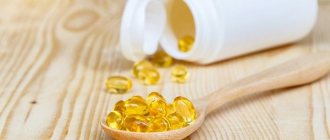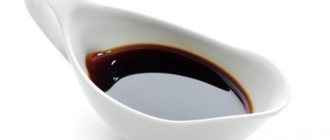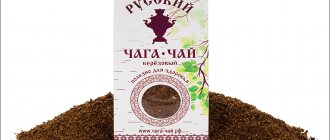pharmachologic effect
The drug has therapeutic effects:
- compacts the top layer of areas with erosion;
- stimulates growth factor in pathologically altered cells;
- activates regeneration processes;
- protects the walls of the digestive tract from the pathological effects of an aggressive environment (enzymes, hydrochloric acid and bile acids);
- reduces the inflammatory reaction in the damaged area;
- kills Helicobacter pylori bacteria, which contribute to the occurrence of peptic ulcers;
- reduces stomach pain;
- eliminates dyspeptic symptoms (nausea, belching, heartburn);
- reduces the frequency of relapses and exacerbations.
De-Nol from Helicobacter pylori
Numerous studies have proven the effectiveness of using bismuth salts against Helicobacter pylori. De-Nol is included in the eradication scheme along with other drugs that suppress pathogenic microorganisms, because the drug blocks the vital enzyme systems of the bacterium, destroys and immobilizes the microbe.
An important feature of Helicobacter infection is the long-term absence of any clinical picture of gastritis.
Manifestations of the inflammatory reaction occur when the diet is disrupted, nervous overload, change of place of residence, or weakening of the body. It is estimated that with the help of De-Nol in combination with various drugs, on average it is possible to completely free the patient’s stomach from a contagious bacterial infection in 80-90% of cases.
Mechanism of therapeutic effect
The tablet reacts with gastric juice - precipitation of insoluble bismuth salts occurs, which in turn react with proteins to form surface foamy compounds.
A protective film in the form of a white coating forms on the ulcerated areas. It persists for several hours. This process prevents the traumatic effects of aggressive biologically active substances (bile salts, enzymes, hydrochloric acid) on the mucous membrane of the stomach and intestines.
The enzymatic activity of digestive juices also decreases.
The medicine stimulates the synthesis of prostaglandins, as a result of which the secretion of mucin (mucous substance) and other compounds increases, and the properties of gastric secretions improve. In the area of erosive damage, regenerative processes are stimulated.
Coagulation of protein molecules, which accompanies the transformation of the drug substance, destroys pathogenic microorganisms of the Helicobacter pylori strain.
More information about the drug "De-nol"
“De-nol” is used for diagnosing chronic gastritis or gastric ulcers in the acute stage, for irritable bowel syndrome, prolonged diarrhea, dyspeptic disorders of various origins, for the prevention of gastrointestinal diseases.
The prescription of “De-nol” is made exclusively by a doctor, since the drug cannot be used for all types of gastritis, for example, the medicine is not prescribed for acute gastritis.
The drug "De-nol" is available in the form of film-coated tablets. The active ingredient in De-nol is bismuth tripotassium dicitrate. De-nol has a strong enveloping, anti-inflammatory, astringent, and antiseptic effect.
The high effectiveness of the drug lies in its ability to accelerate the recovery process. When using De-nol, the mucous membrane is quickly restored, and damaged areas acquire an almost original appearance.
What does the medicine affect? When taking the drug, many processes occur:
- compaction of the top layer of areas damaged by erosion;
- activation of the regeneration process;
- protection of the walls of the digestive tract from the negative influence of an aggressive environment (acid, bile, enzymes);
- reducing the acidity of gastric juice and regulating the production of hydrochloric acid;
- reduction of pain and inflammatory reaction in the damaged area;
- elimination of dyspeptic symptoms: heartburn, nausea and belching;
- reducing the number of relapses and exacerbations.
How does the mechanism of action occur? When the tablet enters the stomach, it begins to act - it reacts with gastric juice, and the process of precipitation of insoluble bismuth salts occurs, which interact with proteins and form foamy compounds on the surface layer of the organ mucosa.
A protective whitish film forms on damaged areas of the mucosa, which remains for several hours. This process prevents the negative effects of aggressive biological substances - hydrochloric acid, bile, enzymes - on the intestinal and gastric mucosa with increased acidity.
The drug stimulates the production of prostaglandids, which promotes the growth of the synthesis of mucin (mucus) and other compounds that improve the properties of gastric secretions. In places of erosion, restoration processes are stimulated. “De-nol” is resistant to the influence of hydrochloric acid, which means it reliably protects the body and does not require additional exposure.
In addition, the medicine has a very important property: antibacterial, which is very important provided that the causative agent of the disease is the bacterium Helicobacter pylori.
Indications
It is advisable to use De-nol for the treatment of pathologies of the digestive organs, including those caused by Helicobacter pylori:
- exacerbation of duodenitis and gastroduodenitis ;
- peptic ulcer of the duodenum and stomach;
- reflux esophagitis;
- irritable bowel syndrome;
- gastritis ( atrophic , chronic , erosive );
- dyspeptic symptoms (heartburn, nausea, belching, epigastric pain, constipation, diarrhea) in the absence of diseases of the internal organs).
It is used for intensive therapy (in the acute phase) and for preventive courses.
Effect of bismuth preparation on gastric pH
There is no point in treating acidity with De-Nol. Neither the annotation of the drug nor the description of the characteristics of the active substance “bismuth tripotassium dicitrate” indicate the properties of normalizing the secretory function of the stomach. Its action does not increase or decrease the pH level. But in the description of the substance it is noted that it precipitates well at a pH value equal to “4” or below this value.
Doctors practice using De-Nol in cases of high acidity to treat ulcers, erosions in the gastrointestinal tract, and eradicate Helicobacter pylori infections, since they often develop against a background of high pH levels. The drug can be prescribed in quadruple therapy regimens, which necessarily include proton pump inhibitors.
For low stomach acidity, De-Nol is used more often in monotherapy . Gastroenterologists can also prescribe co-administration with enzyme agents, if studies have revealed gastric insufficiency, and other medications.
Rules of use
To prevent the development of negative health consequences, it is necessary to take into account the rules specified in the instructions for use of De-nol for gastritis.
For half an hour before and after taking the pill, you should avoid:
- fruit;
- drinks (milk, fruit juices);
- solid food.
When taking these products simultaneously, the effectiveness of De-Nol decreases, because
The substances contained in the products enter into a chemical interaction with bismuth. Take the tablet with drinking water. During treatment, it is necessary to follow the daily and single doses prescribed in the instructions.
The use of large doses of gastroprotector provokes the development of side effects. The course of treatment should not last more than 2 months. After completing the course of De-nol tablets, it is not recommended to take other bismuth-containing medications for 2 months.
De Nol or Omez, which is better?
Medical experts highly appreciate the drug De Nol for its antibacterial activity against pathogenic microflora. Moreover, the effective effect of the drug is achieved not only due to its direct bactericidal effect, but rather by changing the habitat of these microorganisms, creating unfavorable conditions for them.
- De Nol does not serve as a complete substitute for Omez; each of these drugs has its own properties. When prescribing treatment, the doctor assesses the characteristics of the development of the disease in each patient and, based on the conclusions drawn, decides which drug will be used.
- The action of Omez lies in its active substance – omeprazole. Due to the fact that it reacts with the acidic environment of the stomach, the activity of enzymes that stimulate the production of hydrochloric acid is suppressed. The therapeutic effect of the drug lasts on average from 17 hours to a day, the maximum effect is achieved on the fourth day of treatment. Due to its properties, Omez inhibits the development of the Helicobacter bacteria.
- The drug De Nol is a gastroprotector containing bismuth. Reacting with the contents of the stomach, it creates a film on the surface of the damaged mucosa. Increases the process of mucus production and the resistance of the mucous membrane to the irritating effects of acids and enzymes. Has a healing effect, accelerating regeneration processes.
- Both of these drugs belong to different pharmacological groups and have different principles of action, so it is not advisable to compare them. To enhance the therapeutic effect, they can be used simultaneously.
- It should be taken into account that Omez is allowed to be used by children from 2 years of age, as well as by pregnant and lactating women. The cost of this drug is several times lower than that of De Nol.
Currently reading: Does Omeprazole help with heartburn?
How to take De-nol for acute gastritis
Therapeutic dosage depends on:
- patient's age;
- diagnosis;
- body weight (for children's practice).
Traditionally, for acute gastritis and peptic ulcers, the following doses are prescribed:
| Age | Single dose, tablets | Frequency of appointments |
| Adults | 1 | 4 |
| Teenagers over 12 years old | ||
| 8-12 years | 1 | 2 |
| 4-8 years | 1-2 | 1-2 (daily dose is determined at the rate of 8 mg/kg body weight) |
It is recommended to take one dose at night. For convenience, it is allowed to divide the daily dose into 2 doses (in the morning and evening), 30 minutes before meals.
How long to take De-nol for gastritis is determined by a gastroenterologist or therapist. The average course duration is 2-4 weeks.
How to take the drug correctly
Only a doctor has the right to prescribe the drug. It is forbidden to try to drink it yourself without the advice of a doctor. De-Nol tablets are taken orally. Proper nutrition is important. The regimen is structured in fractions; it is recommended to exclude spicy, salty and fatty foods, and coarse fiber from the diet. Avoid eating foods that are too hot or too cold.
Directions for use and dosage
According to the instructions for use, the treatment regimen is as follows:
- For the treatment of children from 4 to 8 years of age, tablets are prescribed at the rate of 8 mg per 1 kg of the child’s body weight. The average therapeutic dosage should be divided into two doses during the day.
- If the child's age is from 8 to 12 years, the average dosage is 1 tablet twice a day.
- If the child has reached the age of 12 years or an adult patient is being treated, the drug is prescribed at the rate of 1 tablet 3 or 4 times a day.
- For gastritis with high acidity, you should take tablets 30 minutes before meals. De-Nol capsules are washed down with plenty of clean filtered or boiled water.
- The full therapeutic course for gastritis is 5 – 8 weeks. The final decision on how long De-nol should be taken is made by the attending physician. In some cases, a course is prescribed to prevent relapse of the disease.
- When the course of treatment with the drug is completed, it is not recommended to take medications containing bismuth for the next two months.
Instructions for use recommend taking the tablets 30 minutes before starting a meal. The patient takes three tablets before meals and the last tablet should be taken at night.
An alternative treatment regimen is to take 2 tablets before breakfast or before dinner. It is strictly forbidden to chew the tablets. It is possible to drink only non-carbonated clean water. Do not take the medicine with tea, milk or coffee. The action will reduce the effectiveness of treatment.
Possible side effects
When taking De-nol, a number of side effects may develop. The frequency of manifestations does not exceed a fraction of a percent.
- Nausea and vomiting.
- Frequent loose stools.
- Constipation.
- Allergic reactions - skin rash, urticaria, itching.
Symptoms appear extremely rarely and are mild. Usually disappears extremely quickly and does not require discontinuation of the drug. Drug treatment with De-nol under such conditions remains highly effective.
From time to time, patients note that taking De-nol causes the stool to turn dark. Reduced memory and attention are rarely observed.
Overdose
If the drug is taken in excessive doses, kidney function may be impaired. In case of overdose, use of the drug should be stopped immediately. The patient is instructed to immediately and thoroughly rinse the stomach. Before the emergency team arrives, it is possible to take the sorbent orally. Activated carbon is often taken. It won't hurt to take a saline laxative. In case of severe poisoning with bismuth preparations, the patient is sometimes prescribed hemodialysis. An overdose of a drug can occur when taking the drug for a long time or taking excessively large doses.
After discontinuation of the drug and emergency assistance, symptomatic treatment may be required. You will need to do a blood test to check your bismuth levels. If the result is elevated, the doctor prescribes complex therapy aimed at eliminating the symptoms.
Side effects
When using De-nol, various side effects may occur.
Most often noted:
- allergic reactions (skin itching, urticaria);
- darkening of the tongue;
- dyspeptic symptoms;
- staining stool black.
In rare cases, anaphylactic shock and encephalopathy develop (when taking large doses of bismuth for a long time, it accumulates in the cells of the brain and spinal cord).
After stopping the use of the tablets, the symptoms disappear. Discontinuation of the medication is not required (with the exception of an acute allergic reaction in the form of anaphylaxis, when emergency medical care and discontinuation of the source of the allergen are required).
Overdose
Overdose occurs with prolonged use of excessive doses or impaired excretory function of the kidneys.
In case of bismuth poisoning the following are observed:
- dyspeptic symptoms;
- stomatitis (inflammation of the oral mucosa);
- specific blue lines on the surface of the gums;
- skin rash;
- pathological processes in the kidneys.
Symptoms disappear after stopping treatment.
Gastric lavage is recommended, followed by the administration of sorbents (Polysorb, Polyphepan, Enterosgel, white carbon, activated carbon, Filtrum-STI) and laxatives (Magnesium sulfate salt). To eliminate discomfort, symptomatic medications (antispasmodics) are prescribed.
When there is a high level of bismuth in the blood plasma against the background of renal pathology, complexing acids are used. They enter into a chemical reaction with bismuth and precipitate it in the form of salts. In case of serious problems with the kidneys, hemodialysis is performed.
General characteristics of the medicine
As soon as the doctor diagnoses the patient with an “ulcer” or “gastritis” after treatment, he will most likely immediately prescribe him a course of treatment with De-Nol. The doctor usually tells you how many tablets to take and how to do it right there in the office, but he does not give a description of the medicine. Although this information is very useful for patients.
So, first of all, you should understand that this drug is one of the most powerful. In addition, it allows you to take a comprehensive approach to the problem, and this already makes it possible to prescribe a simplified regimen and course of treatment. Many patients confuse “De-Nol” and “Omez” with each other, considering them equivalent drugs and replacing them at their own request. However, this cannot be done, since the product we are describing is unique in many respects.
We will tell you how many days the course of treatment with De-Nol lasts for gastritis and ulcers a little later. Now let’s find out what kind of drug this is. The medicine has both healing and antiseptic properties, which makes it indispensable in the treatment of diseases of the gastrointestinal tract. It also has astringent properties that help the drug cope with diseases more effectively. In addition, the course of treatment with De-Nol relieves the patient of Helicobacter pylori, which is the culprit of peptic ulcer disease. A huge advantage of the medicine is the fact that it is not an antibiotic. And therefore, it will not cause serious side effects characteristic of this group of drugs.
I would also like to mention that even with a long course of taking De-Nol, Helicobacter pylori cannot develop resistance to the drug. The medication is equally effective in primary and repeated treatment. Such characteristics are rarely combined in one drug.
Interaction with other drugs
Combination therapy directed against the pathogen Helicobacter pylori is recommended, using:
- Metronidazole ( Trichopol );
- Amoxicillin ( Amoxiclav , Augmentin , Amosin , Flemoxin );
- Clarithromycin ( Klacid ).
In this case, there is a mutual increase in antimicrobial activity. Bismuth interferes with the absorption of tetracycline and weakens its antibacterial effect.
The use of De-nol for gastritis together with proton pump inhibitors ( Omez , Nolpaza , Omeprazole , Nexium , etc.) enhances the mutual gastroprotective effect.
Drugs containing bismuth or its combinations ( Vicair , Vikalin ) increase the risk of overdose.
Taking antacids ( Almagel , Gastal , Rennie, Maalox , etc.) is possible 30 minutes before or after using De-nol.
To eliminate pain, it is allowed to use antispasmodics ( No-shpu, Duspatalin , Dicetel , Buscopan ).
De-nol protects the gastrointestinal mucosa from the irritating effects of non-steroidal anti-inflammatory drugs (NSAIDs).
Interaction with alcohol
Alcohol enhances the toxic effects of the drug.
It should be borne in mind that alcohol can be contained not only in strong alcoholic drinks, but also in some herbal medicines (tinctures, extracts, balms).
Side effect
De Nol is a drug with minimal potential for side effects. Most often this happens when the doctor’s recommendations are not followed and the rules of use are violated. In this case, negative reactions may occur, for example:
- The appearance of nausea and the urge to vomit;
- Bloating;
- Development of an allergic reaction;
- Diarrhea or constipation.
When taking the drug, it is necessary to take into account that the main part of its active substance after the therapeutic effect is excreted from the body along with urine. Therefore, in order to prevent overstrain of the kidneys, De Nol is not recommended for long-term use. Usually the course of treatment does not exceed two months.
During treatment, it is necessary to monitor the condition of the kidneys, since the medicine is eliminated from the body gradually, and renal failure may develop in acute or chronic form. There is also a risk of developing encelophopathy and vegetative-vascular dystonia.
Currently reading: Rennie - active composition, action, effectiveness
Analogs
On average in Moscow, the cost of a De-nol package of 56 tablets is 520 rubles, 112 tablets – 970 rubles. The tablets are expensive, so patients are interested in substitutes at an affordable price. Another reason that requires replacing the original medicine is intolerance to the components of the drug.
Analogs of De-nol can be divided into 2 groups:
Preparations identical in active substance:
| Name of the drug, manufacturer | Release form | Price |
| Ulkavis, KRKA (Slovenia) | Pills | 28 tab. — 190 rubles, 56 pcs. – 370 rub., 112 pcs. – 630 rub. |
| Novobismol, Pharmaceutical enterprise "Obolenskoe" (Russia) | Pills | 56 pcs. – 370 rub., 64 pcs. – 400 rub., 112 pcs. – 600 rub., 120 pcs. – 610 rub. |
| Escape, OTCPharm PJSC (Russia) | Pills | 40 pcs. - 260 rub., 112 pcs. – 730 rub. |
Other gastroprotectors
| Name of the drug, manufacturer | Release form | Price |
| Venter, KRKA (Slovenia) | Sucralfate tablets | 50 tab. — 340 rub. |
| Rebagit, PRO.MED.CS Praha as (Czech Republic) | Pills | 30 tab. — 780 rub. |
Interaction and use of the drug at low pH levels
De-Nol is often used in complex therapy together with antibiotics, antimicrobial agents, and hydrochloric acid blockers (PPIs). The last group of drugs is prescribed to patients with preserved and high acidity.
At low pH levels, De-Nol is compatible with medications containing the following substances:
- metronidazole;
- furazolidone;
- amoxicillin;
- tetracycline;
- clarithromycin.
De-Nol cannot be combined with proton pump inhibitors in case of low stomach acidity. This group includes all PPIs containing the active ingredients dexlansoprazole, omeprazole, esomeprazole, lansoprazole, rabeprazole, pantoprazole. They reduce the already low pH level, which causes diarrhea, nausea, and other symptoms of dyspepsia.
If you have low acidity, you should also not take De-Nol together with:
- kombucha;
- potato juice;
- alkaline waters;
- anacidic drugs;
- alcohol;
- products and agents that lower the intragastric pH level.
With any treatment regimen, regardless of the acidity level, the course of De-Nol is 28–56 days. Teenagers and adults are allowed to drink 480 mg of bismuth per day, children aged 8–12 years – 240 mg/day. For children over 4 years of age, the dosage is calculated individually according to the regimen of 8 mg/kg/day.
Important! The tablets are taken in between meals, washed down with 50-100 ml of non-alkaline water without gas. Eating is allowed after 35 minutes. Half an hour before/after taking De Nol you should not consume milk, dairy dishes, fruit juices, or food.
Reviews from doctors and patients
Reviews from people who took De-nol for gastritis confirmed its effectiveness.
They listed the following advantages of the drug:
- rapid relief of symptoms accompanying stomach disease (heartburn, belching, pain in the epigastrium);
- long-term therapeutic effect;
- Possibility of use by drivers and persons whose professional activities require concentration;
- reliable manufacturer (Astellas, Netherlands);
- suitable for treating children;
- sold everywhere, without a doctor's prescription;
- well tolerated.
The disadvantages are considered:
- high cost;
- requires the use of other medications;
- lack of a children's dosage form; tablets are inconvenient to give to young patients.
Reviews from doctors who recommended De-nol for gastritis are consistent with the opinions of patients.
Additionally, experts note the fact that after learning its cost, patients with low incomes refuse to buy it. Because of this, the effectiveness of treatment decreases, and prescriptions have to be adjusted. Serious side effects and poisonings occurred extremely rarely. The positive point is that there are a minimum of contraindications, which is why the drug can be recommended to most people suffering from diseases of the digestive system.
Conclusion
De-nol is an effective remedy for the treatment of pathologies of the intestines and stomach. Its effectiveness has been confirmed by decades of practical gastroenterology. When treating gastritis in the acute stage, it is prescribed in combination with other drugs that restore the normal functioning of the gastrointestinal tract.
Despite the apparent safety and over-the-counter availability, the use of tablets requires precautions. By following the recommended doses and rules for taking the tablets, taking into account compatibility with medications and food, a positive result will not be long in coming and your stomach will thank you!
Methods of administration and dosage of medicine for stomach ulcers
As we understand from the information above, it is quite possible to cure a stomach ulcer with De-Nol . But this drug should be taken only on the recommendation of a doctor in order to avoid an overdose or possible side effects caused by individual intolerance of the body.
At the same time, if the body’s individual intolerance to the drug can be identified solely through diagnosis, then the dosage of De-Nol for stomach ulcers has clear guidelines. Namely:
- For children aged 4 to 8 years, the daily dose of medication should not exceed 80 mg (for children whose age ranges from 4-5 years, the daily dose is recommended to be divided into two doses: morning and evening);
- For children aged 8 to 14 years, doctors recommend taking no more than 1 tablet per day (120 mg of bismuth oxide). At the same time, it should be noted that for children who at this stage of development have problems with weight and suffer from stomach ulcers, the daily dosage of the medication can be increased or decreased, and the drug intake itself will also be divided into two doses;
- For adolescents (over 14 years old) and adult patients, the daily dose of De-Nol for stomach ulcers is about 500 mg of bismuth oxide, which equates to 4 tablets per day. And it is better to take such a number of tablets not at once, but one tablet at a time, after the same period of time.
As for taking De-Nol for stomach ulcers, it should be prescribed to the patient exclusively before eating (at least 20-30 minutes before). In this case, the tablet must be washed down with a large amount of ordinary water, without gas. But the course of treatment for ulcers with De-Nol can vary from 2 weeks to 1 month, depending on the nature of the pathology (acute or chronic).
Contraindications: in what cases should the medication not be used to treat gastritis?
So, what are the indications for treating gastritis with De-Nol?
- The drug is prescribed for ulcers (both stomach and duodenal).
- Dyspepsia (in the form of a syndrome).
- Irritation of the colon (in the form of a syndrome)
- Gastritis when leaving the acute form (into the chronic form), mainly in form B.
- Ellison syndrome.
The medicine is prescribed strictly by a doctor; self-medication is not allowed. It is usually sold in pharmacies without a prescription. It is important to understand that even such a good and useful medicine has a number of contraindications. The instructions for use contain a complete detailed list of them.
The use of the medicine by pregnant women or women during breastfeeding is strictly prohibited. This is the main contraindication of the drug. If your exacerbation occurs during pregnancy, you should not drink De-Nol. Ask to be prescribed other medications that are allowed in your situation.
There are the following contraindications to taking this medicine:
- children under 12 years of age;
- pregnant women;
- nursing mothers;
- patients with acute kidney pathologies;
- individual intolerance to the components present in the medicine;
- undergoing therapy with medications that contain bismuth.
Each drug, in addition to its positive effect on the body, can provoke the development of side effects.
De-Nol is no exception, so patients should be aware of the following manifestations:
- vomiting reflex;
- change in the color of stool (they turn black);
- nausea;
- disruption of bowel movements (there may be both constipation and diarrhea);
- the appearance of plaque on the tongue;
- loss of coordination;
- decreased attention;
- allergic reactions, manifested in the form of rashes on the skin (for example, urticaria, itching, peeling, redness, etc.);
- the appearance of an unpleasant taste in the mouth (metallic);
- damage to brain cells.
If the patient independently exceeds the dosage of these tablets, he may experience bismuth poisoning, which is accompanied by the following symptoms:
- disruption of the defecation process (loose stools);
- development of pain syndrome;
- a black border appears on the gums;
- attacks of nausea;
- bloating;
- vomiting reflex;
- strong rumbling, etc.
A variety of side effects may occur while taking the drug. Most often, the following effects are noted:
- staining feces black;
- darkening of the tongue;
- allergic skin reactions - itching, rashes;
- digestive disorders - diarrhea or constipation.
After completing the course, these phenomena disappear without additional treatment. But when the dosage is increased or taken for too long, signs of poisoning with bismuth salts appear.
The main indications for taking De-Nol are as follows:
- exacerbations of duodenitis and gastroduodenitis;
- ulcerative lesions of the duodenum and stomach;
- reflux esophagitis;
- gastritis occurring in different forms;
- dyspeptic disorders (heartburn, pain, nausea) in the absence of organic lesions of internal organs.
The main contraindications to taking the drug are as follows:
- children under 4 years of age, at older ages treatment is possible, but individual dosage selection is necessary;
- The product should not be used during pregnancy, as bismuth salts can have an extremely negative effect on the development of the baby;
- lactation period, if treatment is necessary for a nursing mother, it will be necessary to stop breastfeeding;
- serious impairment of kidney and liver function;
- individual negative reactions of the body (allergy to any of the components of the drug).
It is necessary to take De-nol correctly to avoid side effects. Using De-nol according to the instructions, following the dosage and rules of administration help to avoid adverse reactions.
The following reactions can be observed as side effects:
- itchy skin, urticaria;
- inflammation and swelling of the gums, blackening of the tongue;
- failure of the kidneys;
- nausea, sometimes with vomiting, constipation, alternating with diarrhea;
- unpleasant taste and odor from the mouth after using the medicine;
- acquisition of black stool;
- attention and memory disorder (in rare cases);
- encephalopathy is possible, which is caused by the accumulation of bismuth in the body (with long-term use of the drug).
Gastrointestinal manifestations can occur frequently, but are usually temporary and do not require additional treatment, as they resolve on their own.
If symptoms of allergic reactions or encephalopathy appear, stop taking the drug and consult a doctor.
Other contraindications include: the presence of severe renal dysfunction, intolerance or hypersensitivity to the components of the drug, recent use of drugs with the same active substance or a similar effect.
When the treatment regimen contains, in addition to De-nol, antacid drugs to get rid of heartburn, De-nol is taken separately from them, since such drugs reduce the effect of its effect. For the same reason, it is forbidden to drink milk at the same time as taking the drug.
Kidney damage is possible if a very large dose is taken (10 or more times the permitted dose). In case of bismuth poisoning, gastric lavage is performed, treatment with enterosorbents (Polysorb, Polyphepan, Enterosgel, white carbon, activated carbon, Filtrum-STI) and laxatives (Magnesium sulfate salt) is prescribed; in especially severe cases, hemodialysis is performed.
Antispasmodics may be prescribed for pain relief. If there is a large amount of bismuth in the blood against the background of kidney pathology, complexing acids can be used. They enter into a chemical reaction with bismuth and precipitate it in the form of salts.











